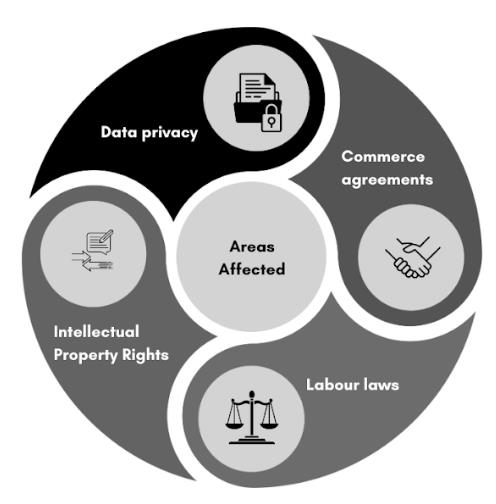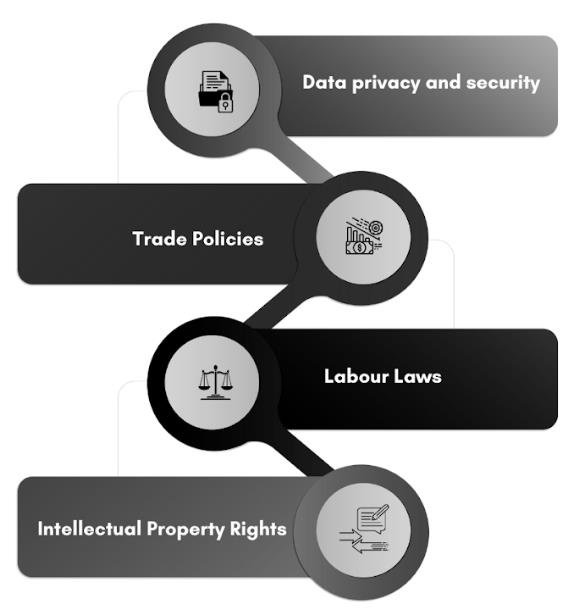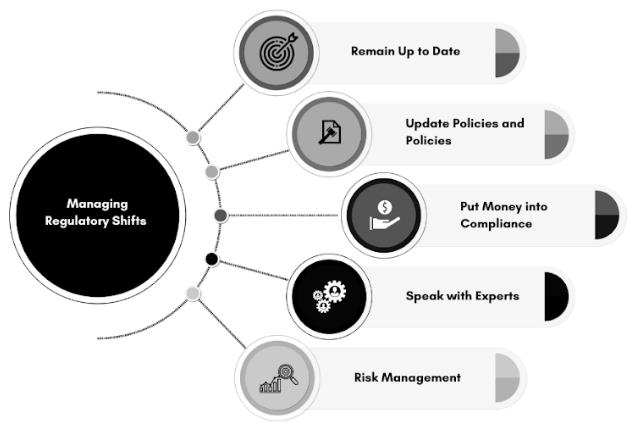Today, a large portion of operations for many organisations involve outsourcing. It entails contracting with outside businesses to do certain jobs or provide services. However, laws and regulations pertaining to outsourcing are prone to change throughout time, just like everything else. Let’s examine these shifts’ implications and how companies might adapt to them.
Regulatory Changes: What Are They?
Updates to the laws and regulations governing the operations of enterprises are known as regulatory changes.
Areas Affected: A number of areas may be influenced by these changes, including:

- Data privacy: Regulations governing how businesses manage personal data (e.g., CCPA in California, GDPR in Europe).
- Commerce agreements: Regulations affecting tariffs and global commerce.
- Labour laws: Rules governing pay, hours worked, and benefits for employees.
- Intellectual Property Rights:Laws that safeguard trademarks, patents, and other forms of intellectual property are known as intellectual property rights.
The Significance of Outsourcing
- It is vital that you adhere to these rules.
- There could be consequences for noncompliance.
- guarantees the efficient running of outsourcing operations.
Key Challenges in Outsourcing

- Data Privacy and Security: Laws like GDPR in Europe and CCPA in California set strict rules on how companies handle personal data. If companies don’t follow these rules, they can face hefty fines.
- Trade Policies: Changes in trade policies and tariffs can affect how much it costs to outsource services. Companies need to be aware of these changes to plan their budgets effectively.
- Labour Laws: Different countries have different labour laws. This includes everything from minimum wage to working hours and employee benefits. Outsourcing companies must follow these local laws to avoid legal trouble.
- Intellectual Property Rights: Protecting intellectual property (IP), like patents and trademarks, is crucial. Regulatory changes can impact how IP is managed and protected in different countries.
Managing Regulatory Shifts

- Remain Up to Date: Stay informed about modifications to rules and regulations in the nations in which you conduct business. To keep informed, sign up for legal updates and speak with regional specialists.
- Update Policies and Procedures: Make sure your business’s policies reflect the most recent legislation. This could entail modifying labour procedures, handling data differently, or rewriting contracts.
- Put Money Into Compliance: Invest resources to guarantee adherence. This could entail employing compliance inspectors, educating staff members, or automating compliance checks with software.
- Speak with Experts: Consult with legal and regulatory professionals who can help you understand and navigate complicated regulations.
- Risk management: Create a strategy to control hazards. Determine any regulatory concerns and develop plans to address them to keep your organisation operating efficiently.
A Recap
Although managing regulatory changes in global outsourcing can be difficult, businesses can manage these changes well if they have the appropriate plans in place. The secret to success is to invest in compliance, adjust swiftly, and stay informed. Outsourcing businesses may maintain seamless operations and sustain their success in the global market by doing this.

